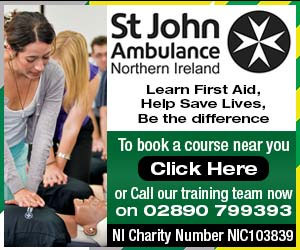18/06/2014
Aspirin Won't Stop Strokes - NICE
Thousands of people with the heart condition atrial fibrillation, which causes irregular or abnormally fast heart rates, could be saved from strokes, disability or death because of new guidance from NICE.
The update highlights the need to ensure people with atrial fibrillation (AF) are offered the right treatments to reduce their chance of dying from strokes.
Atrial fibrillation happens when abnormal electrical signals fire from the top chambers of the heart (the atria). The chambers contract randomly and override the heart's natural pacemaker. The condition affects around 800,000 people in the UK; but it's thought around 250,000 others may be undiagnosed. Symptoms can include heart palpitations, dizziness, shortness of breath and fatigue.
"Atrial fibrillation is a major cause of stroke because it often leads to the formation of blood clots. We know that AF increases the risk of strokes by up to five times. It's estimated that the condition causes around 12,500 strokes each year," says Professor Mark Baker, NICE's Director of Clinical Practice.
"We also know that that around 7,000 strokes and 2,000 premature deaths could be avoided every year through effective detection and protection with anticoagulant drugs that prevent blood clots formingi. Unfortunately only half of those who should be getting these drugs, are. This needs to change if we are to reduce the numbers of people with AF who die needlessly or suffer life-changing disability as a result of avoidable strokes."
(CVS/CD)
The update highlights the need to ensure people with atrial fibrillation (AF) are offered the right treatments to reduce their chance of dying from strokes.
Atrial fibrillation happens when abnormal electrical signals fire from the top chambers of the heart (the atria). The chambers contract randomly and override the heart's natural pacemaker. The condition affects around 800,000 people in the UK; but it's thought around 250,000 others may be undiagnosed. Symptoms can include heart palpitations, dizziness, shortness of breath and fatigue.
"Atrial fibrillation is a major cause of stroke because it often leads to the formation of blood clots. We know that AF increases the risk of strokes by up to five times. It's estimated that the condition causes around 12,500 strokes each year," says Professor Mark Baker, NICE's Director of Clinical Practice.
"We also know that that around 7,000 strokes and 2,000 premature deaths could be avoided every year through effective detection and protection with anticoagulant drugs that prevent blood clots formingi. Unfortunately only half of those who should be getting these drugs, are. This needs to change if we are to reduce the numbers of people with AF who die needlessly or suffer life-changing disability as a result of avoidable strokes."
(CVS/CD)
Related UK National News Stories
Click here for the latest headlines.
27 September 2005
Statins could reduce more strokes and heart attacks
Statin drugs should be used to prevent heart attacks and strokes in patients, regardless of whether they have high cholesterol levels or not, a new study has claimed. Statins tend to be prescribed to people with high cholesterol levels in order to minimise the risk of heart attacks or strokes.
Statins could reduce more strokes and heart attacks
Statin drugs should be used to prevent heart attacks and strokes in patients, regardless of whether they have high cholesterol levels or not, a new study has claimed. Statins tend to be prescribed to people with high cholesterol levels in order to minimise the risk of heart attacks or strokes.
09 April 2015
Shorter People More At Risk Of Heart Disease
Shorter people are more at risk of coronary heart disease, according to a new study led by Professor Sir Nilesh Samani, British Heart Foundation Professor of Cardiology and Head of the Department of Cardiovascular Sciences. The research discovered that every 2.5 inches of change in height affects the risk of coronary heart disease by 13.5%.
Shorter People More At Risk Of Heart Disease
Shorter people are more at risk of coronary heart disease, according to a new study led by Professor Sir Nilesh Samani, British Heart Foundation Professor of Cardiology and Head of the Department of Cardiovascular Sciences. The research discovered that every 2.5 inches of change in height affects the risk of coronary heart disease by 13.5%.
02 April 2012
Heart Failure's Effects Can Be Reversed With Rest
Structural changes in heart muscle cells after heart failure can be reversed by allowing the heart to rest, according to research at Imperial College London. Findings from a study in rats published today in the European Journal of Heart Failure show that the condition's effects on heart muscle cells are not permanent, as has generally been thought.
Heart Failure's Effects Can Be Reversed With Rest
Structural changes in heart muscle cells after heart failure can be reversed by allowing the heart to rest, according to research at Imperial College London. Findings from a study in rats published today in the European Journal of Heart Failure show that the condition's effects on heart muscle cells are not permanent, as has generally been thought.
26 September 2003
More women die of heart disease than men: WHO report
Contradicting conventional wisdom, the largest-ever worldwide collaborative study of heart disease has found that women are slightly more likely to die from cardiovascular disease (CVD) than men and that heart attacks and strokes kill twice as many women as all cancers combined, the World Health Agency said today. Out of the total 16.
More women die of heart disease than men: WHO report
Contradicting conventional wisdom, the largest-ever worldwide collaborative study of heart disease has found that women are slightly more likely to die from cardiovascular disease (CVD) than men and that heart attacks and strokes kill twice as many women as all cancers combined, the World Health Agency said today. Out of the total 16.
20 April 2010
97% Unaware Of 'Muffin Top' Health Risks
Most people have no idea that rolls of fat around their waistline are putting them at increased risk of heart disease, diabetes and cancer, a poll reveals. While being overweight or obese in general poses a health hazard, concentrated fat deposits around the midriff – commonly nicknamed spare tyres or muffin tops – are particularly dangerous.
97% Unaware Of 'Muffin Top' Health Risks
Most people have no idea that rolls of fat around their waistline are putting them at increased risk of heart disease, diabetes and cancer, a poll reveals. While being overweight or obese in general poses a health hazard, concentrated fat deposits around the midriff – commonly nicknamed spare tyres or muffin tops – are particularly dangerous.
-
Northern Ireland WeatherToday:It will be cloudy again throughout the day. Mainly dry in the morning, but patchy drizzle in places, becoming more widespread and persistent in the afternoon. Freshening southwesterly winds. Maximum temperature 12 °C.Tonight:Cloudy with a spell of heavy rain pushing south through late evening and the early hours, followed by some clear spells. Minimum temperature 6 °C.








